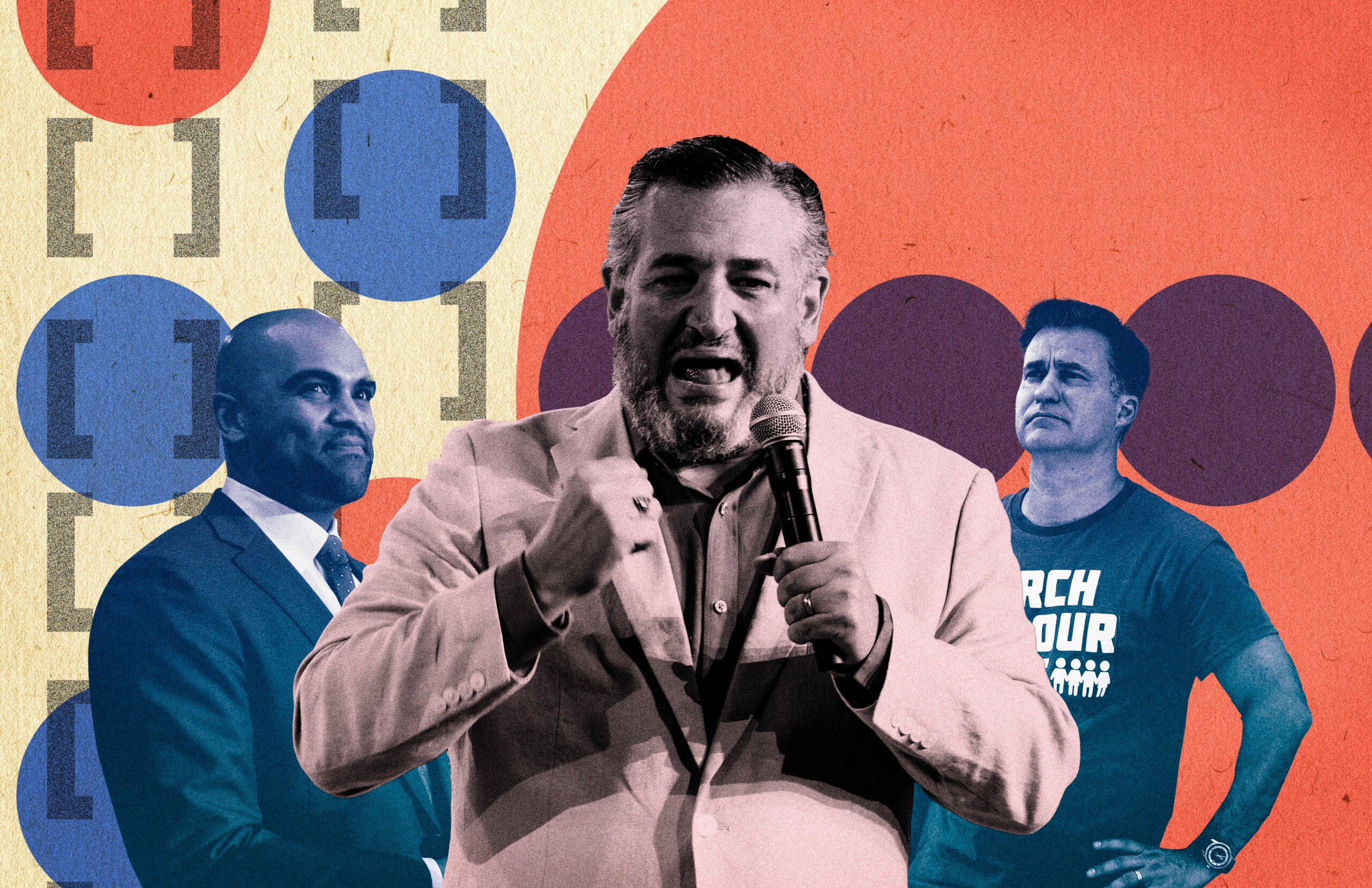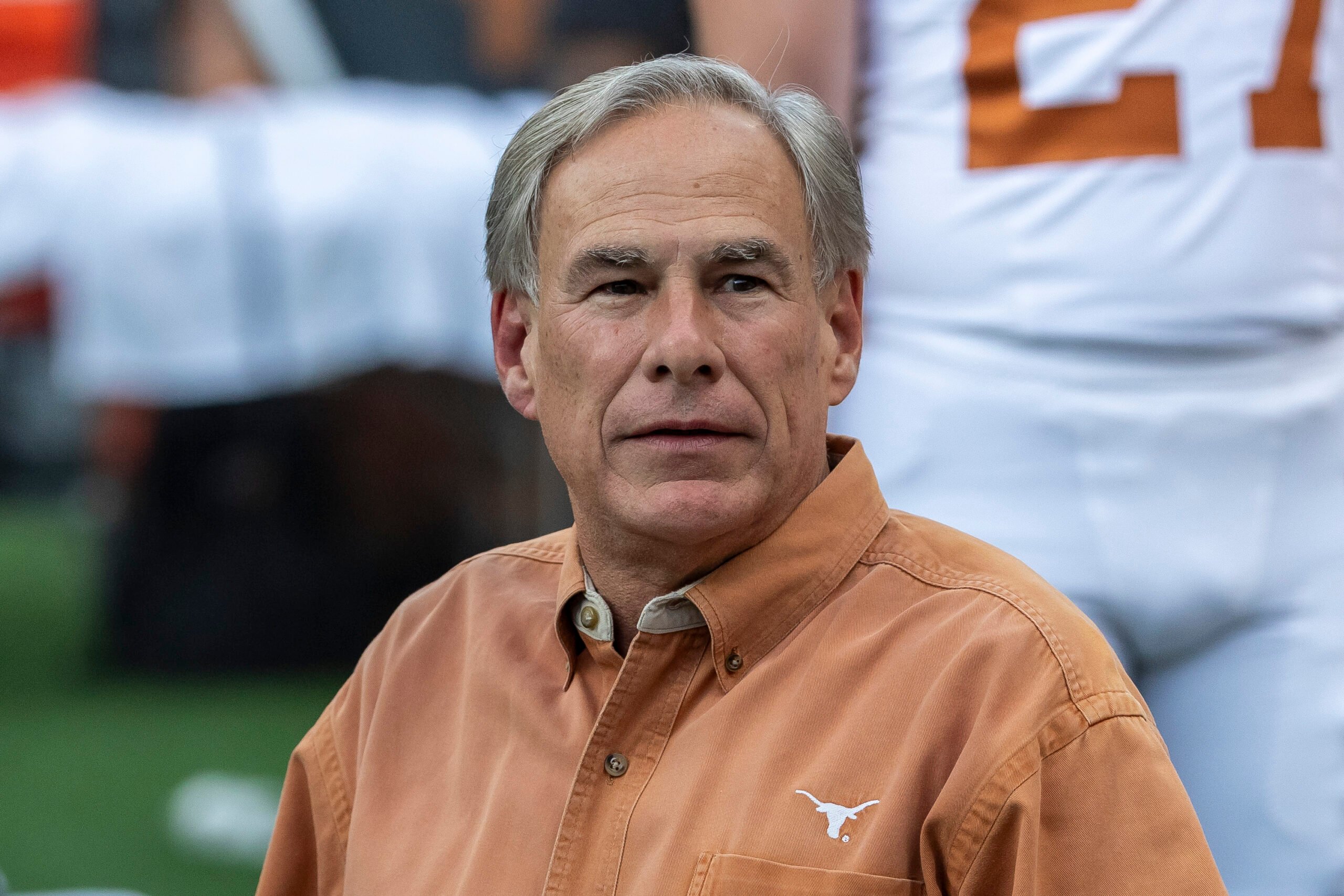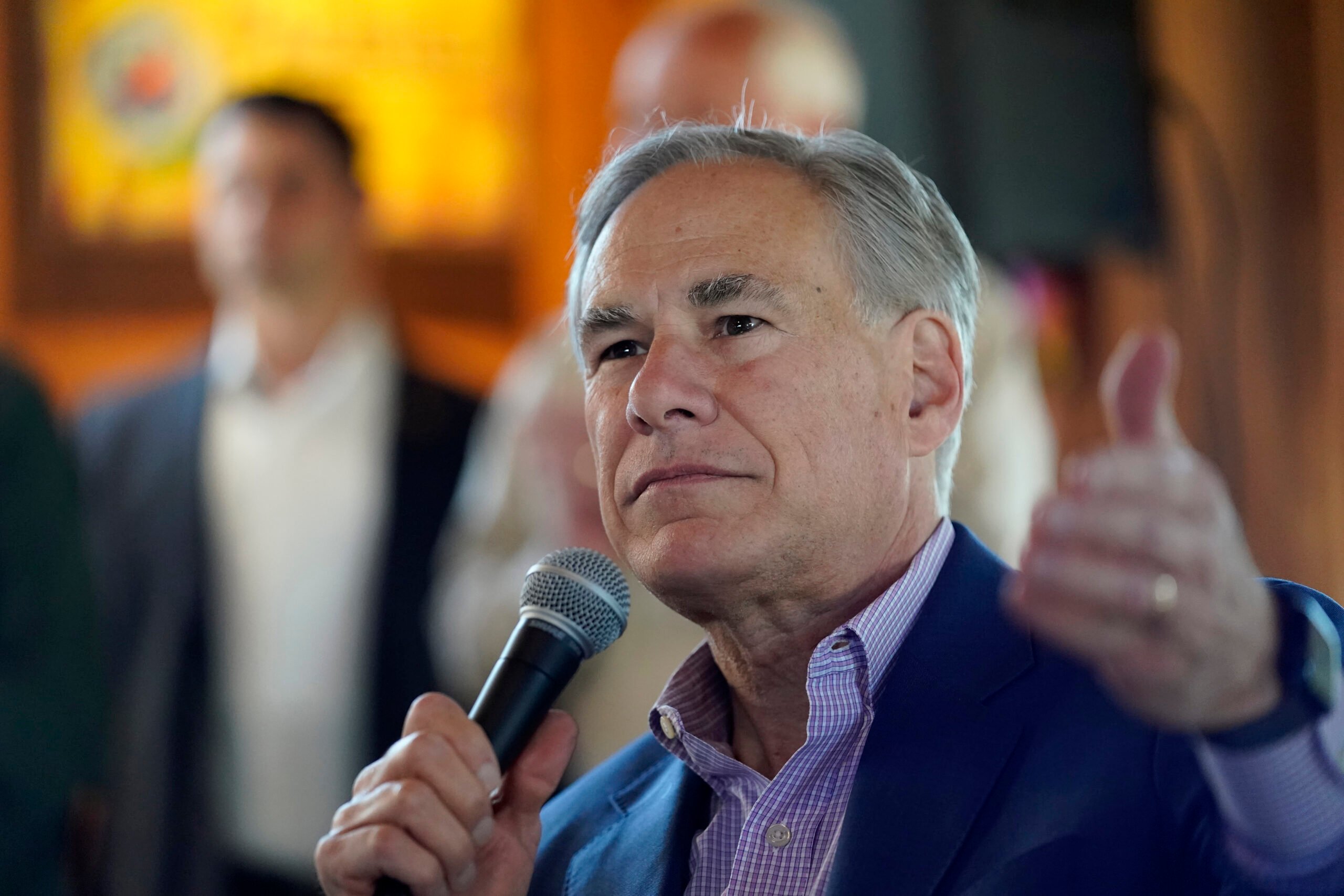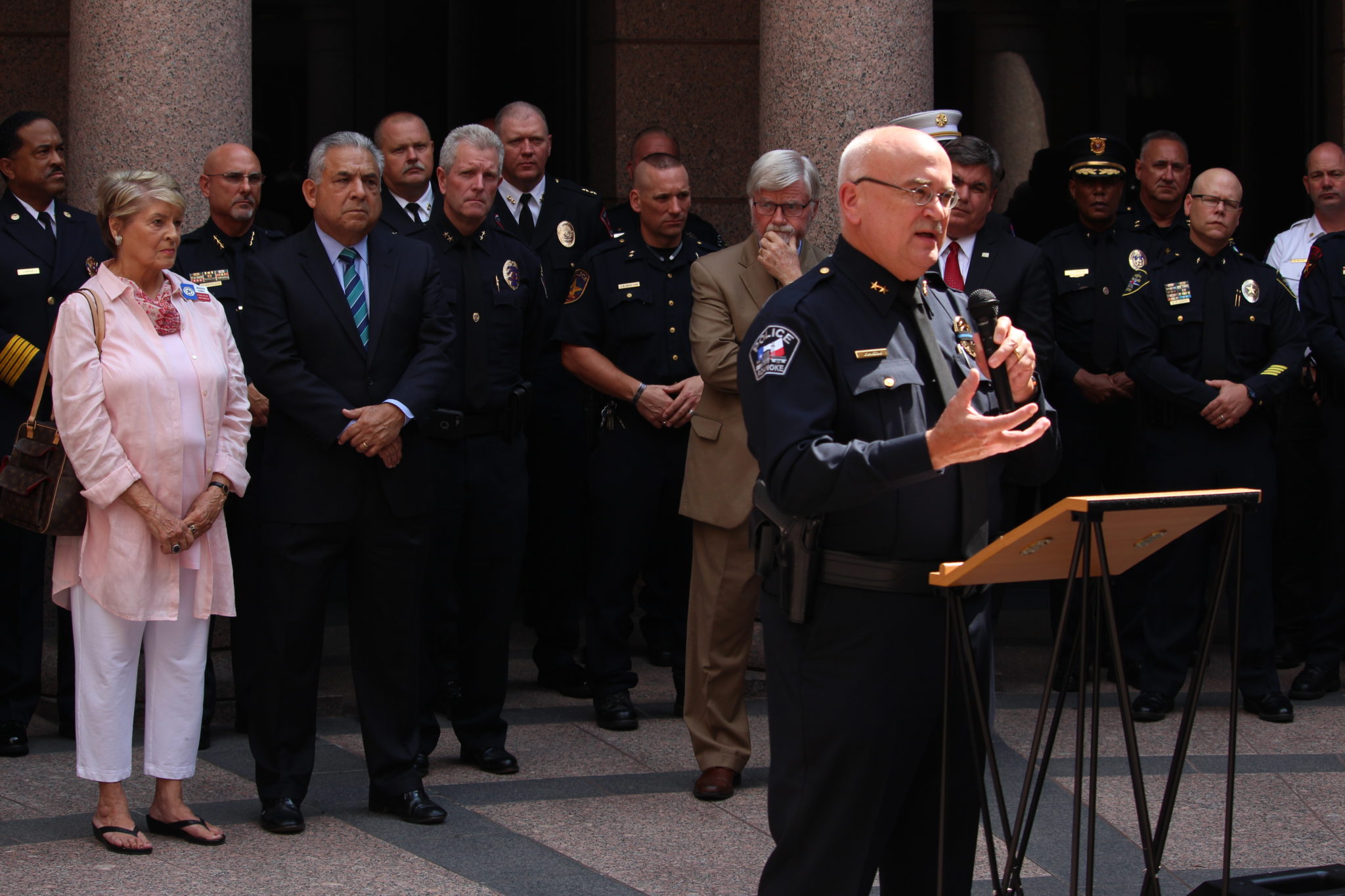
Law Enforcement Increasingly Opposed to Abbott’s Agenda
A cap on property taxes joins a growing list of special session measures opposed by Texas law enforcement.

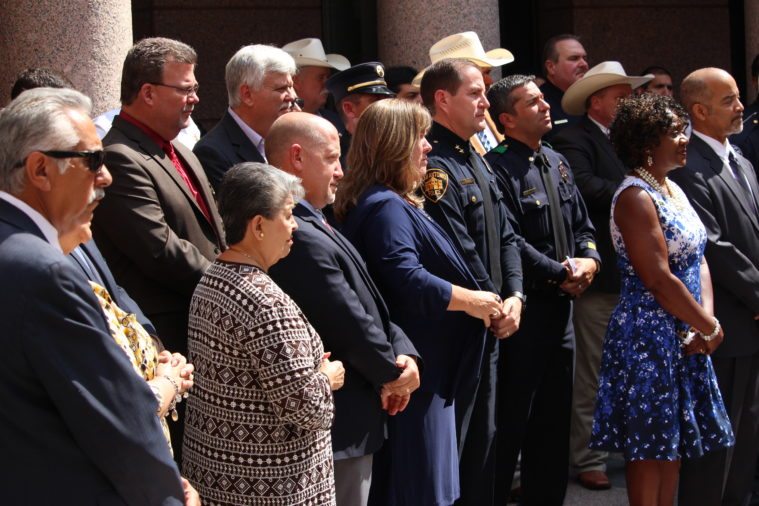
On Wednesday, the resistance to the governor’s special session agenda wore cowboy hats and badges. Dozens of law enforcement and emergency personnel filled the Capitol’s outdoor rotunda to oppose measures they say would underfund essential public services.
The legislation, which would limit cites and counties’ ability to raise property taxes without elections, joins a growing list of measures that have driven a wedge between Republican leadership and a typically loyal constituency: law enforcement. Sheriffs and chiefs from across the state have turned out to oppose an anti-union bill, the so-called bathroom bill and the “sanctuary cities” ban this year at the Capitol.
“Every year we see officers killed in the line of duty, and without the ability for cities to properly fund us, we’re always going to be behind the curve,” said Gary Johnson, vice president of the Texas Police Chiefs Association. Johnson, the police chief of Roanoke, was joined in opposition by representatives from several law enforcement, firefighter and EMS groups.
Senate Bill 1 and House Bill 4 would both require cities and counties to hold elections if they wish to raise property taxes by more than 6 percent. Governor Greg Abbott and Lieutenant Governor Dan Patrick call the legislation “property tax relief,” but critics say it’s a “revenue cap” that would make it more difficult for local government to provide basic services. SB 1 already passed the Senate, and the House could take it up on Saturday.
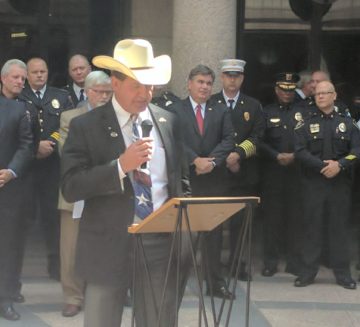
Jackson County Sheriff Andy Louderback, legislative director of the Sheriffs’ Association of Texas, said the bills would worsen understaffing in urban areas and exacerbate a shortage of mental health facilities. “Let’s protect our citizens; let’s find good government in this process and work together for the good of all Texans,” he urged.
Critics also note the bills wouldn’t affect school districts, which levy the vast majority of property taxes in response to years of state funding cuts. “Why are we focused on cities and counties when the solution is to fix the school finance system?” Senator Jose Rodriguez, D-El Paso, told the Austin American-Statesman.
In late July, the Senate passed legislation that would ban public employees from voluntarily having union dues withheld from their paychecks. “It disgusts me,” said Austin Police Association President Ken Casaday.
A few days earlier, the Senate also passed the so-called bathroom bill despite a critical press conference held by law enforcement leaders. “It may be great political theater, but it is bad on public safety,” Houston Police Chief Art Acevedo told reporters.
Both bills are stalled in the House, and the special session ends August 16.
https://twitter.com/bova_gus/status/895314400625672193
During the regular session, Texas’ “sanctuary cities” ban became law despite repeated rebukes from big-city police chiefs and sheriffs, who said the measure would undermine trust with immigrant communities. Acevedo announced in April that sexual assault reporting among Hispanics in Houston had decreased by more than 40 percent compared to the same time last year.
